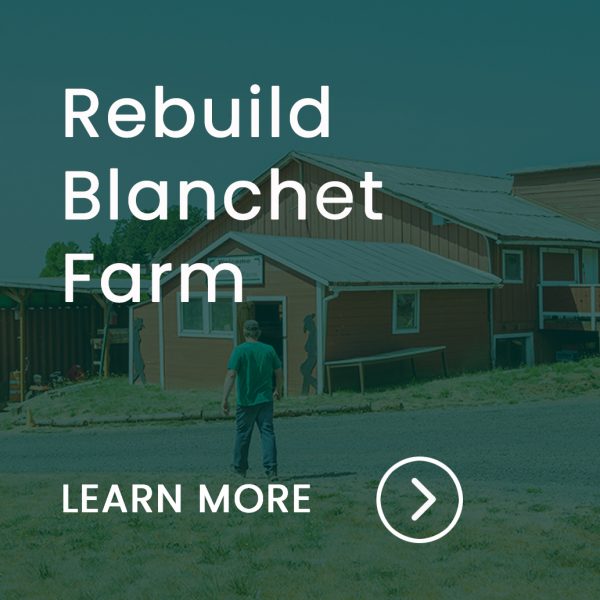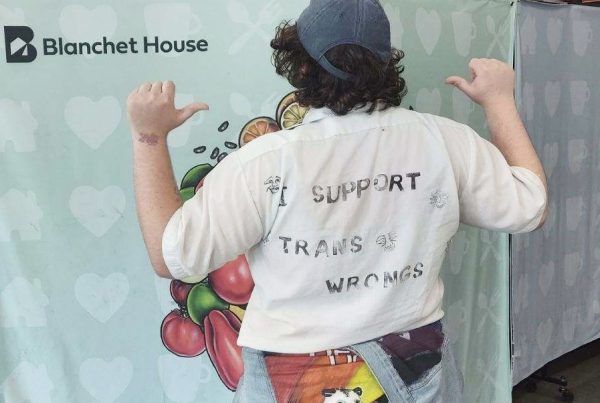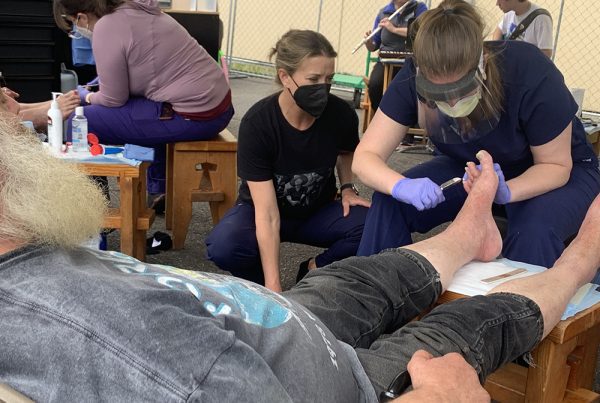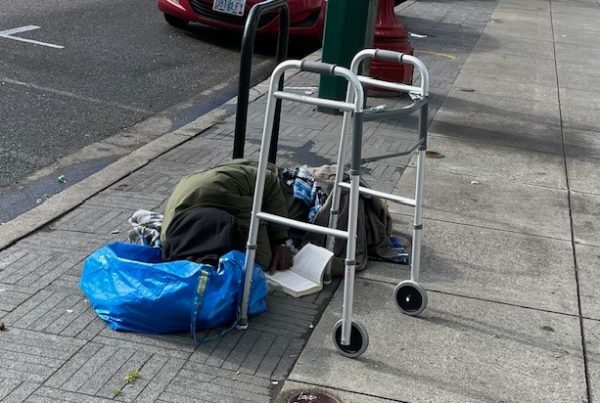We’re all scared, but we don’t have to be if we fund dignified services for the most vulnerable in our community. A Portland ban on homelessness will put people already in a bad situation further at risk unless we act.
In March 2020, I began volunteer work at Blanchet House even though the world seemed to be ending due to the pandemic. Blanchet House offered a rare ray of hope in Portland during this time. The people there believed that they could help each other, that things could get better, and that we could defend the vulnerable and get to a better place.
I served alongside hundreds of volunteers to make sure those who lost everything when the world came to a halt would have a chance to get back on their feet once it opened up again. Well, I believed it would open to them again.
Fast forward to May of 2023, COVID was declared over as a health crisis, and in those in-between years, our views of the vulnerable changed. Many of us still work to defend human dignity, but more and more there has been a narrative attacking those who are experiencing homelessness, struggling with mental illness, and wrestling with addictions. It’s become more common to blame those struggling for the bad situation they are in, instead of offering a helping hand or celebrating the places that offer care. But I think I know why.
Over the last three years, we have all experienced massive tumult and trauma. We finally saw that the social safety net we thought existed was never really there at all. Our narratives of ‘get up and try again’ and ‘failure will make you stronger’ proved false. People who fell on hard times were left to lie on the sidewalk, and those with severe mental health challenges were barred from accessing resources.
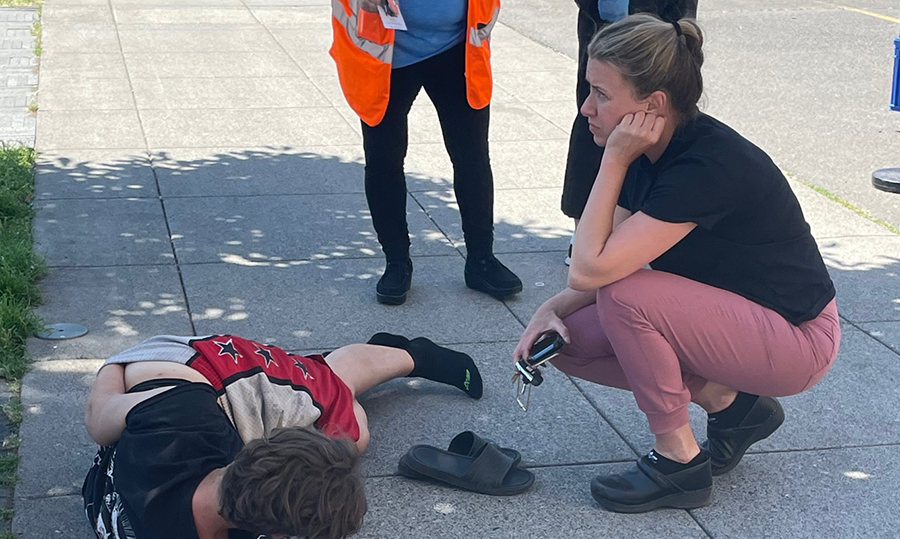
Nurse Emily Harrington volunteers to aide a homeless woman in pain on the sidewalk outside Blanchet House. Harrington co-founded the Harrington Health Clinic, located inside Blanchet House, to help people in need of low-barrier health care.
We heard stories of friends and loved ones losing money, homes, assets, and security as the economy lurched in all directions. The blows of meth and fentanyl were felt as new recipes for deadly drugs exploded in our neighborhoods. We saw that if we struggle, others may leave us behind.
And we’re scared. Because we didn’t know we were this vulnerable.
I’m scared too. I am a renter and am subject to the whims of inflation. I have seen in my personal life the devastating effects of drug abuse and mental illness. In my neighborhood, I know people who live on the very margin of survival, and I understand there are very limited resources I can provide them.
And I understand that when people get scared, they become angry. I’ve been shouted at and threatened and cursed many times by people so frightened that they feel their only outlet is rage. And I myself have felt that same rage when it’s just so hard to feel in control of anything in my life.
It’s Only Human to Feel Scared and Angry
I want everyone to know that it’s OK to feel scared. Or to feel angry. It’s human.
But we won’t make it out of this if we let our anger win. If the problem is our lack of a safety net, we should build that safety net. We all want it, we all need it, and our fear is that it won’t ever be here. We can build it, and only then will we be able to release this fear.
When we outlaw poverty, like with Portland’s new ban on homelessness, we do the opposite. Criminalizing poverty will punish us for a lack of prosperity. There will no longer be a safety net for us if we stumble.
When we continue to make funding scarce for service providers and refuse to renew programs that help those in need, we reinforce fear. When we do this to our most vulnerable, it affects us all. Even if we have a roof now, we know that we, too, could be subject to punishment if we stumble. And in the last three years, we all saw just how close we were to the edge.
I hope that you will join me. We can build opportunities for those that don’t have them and resist the messages of blame and anger and fear. I hope that you will find opportunities to say “yes” to more resources for our neighbors. Fight the urge to make laws that say “no” to the few survival options available.
Let’s construct a place where those who fall can receive care to get back up and thrive again. It would make us all feel better. It would make us all feel safe.
Jon Seibert is the Programs Director at Blanchet House. You can contact him at jseibert@blanchethouse.org.










